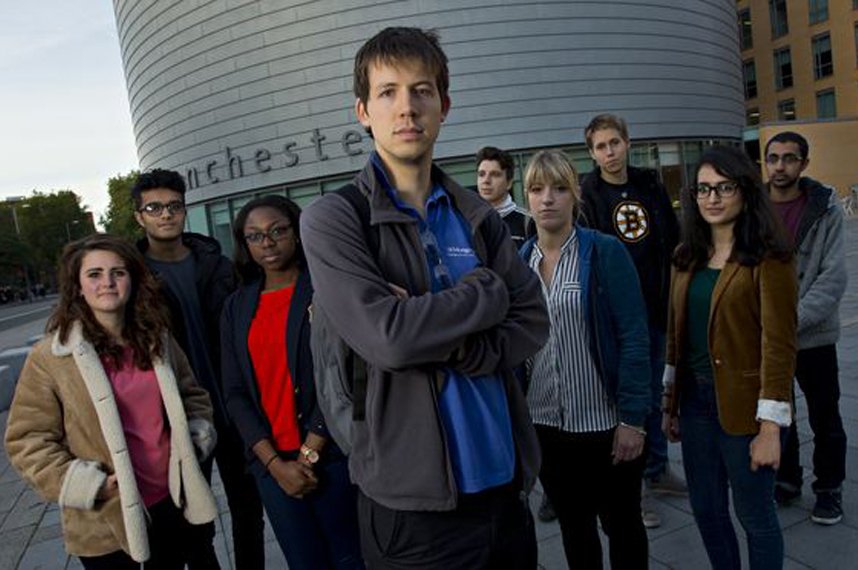After the 2008 crash many have started to rethink how mainstream economics and finance should be taught. The Post Crash Economics Society is a group of economics students at the University of Manchester who have a fundamental belief that the economics syllabus needs to be reformed. This includes addressing teaching methods. The students involved were inspired to create the society following attending a 2011 Bank of England Conference titled, “Are Economics Graduates Fit for Purpose?” The reason for getting started, as explained by the Post Crash Economics Society was:
“The economics we were learning seemed separate from the economic reality that the world was facing and devoid from the crisis that had made many of us interested in economics to begin with.”
This led the group to look at how mainstream economics was being run in a certain way, in the neoclassical style, as opposed to using alternative approaches. It was this that formed the basis for discussion, initially. The Post Crash Economics Society subsequently researched and produced a report which outlines the failings of economics education, producing recommendations for reform. The society was awarded a grant from the Friends Foundation.
The report’s findings include the fact that students are discontented about economics education, and this is not just limited to students at the University of Manchester. They argue that the fact that similar societies are found at Cambridge, London School of Economics, Sheffield, Glasgow, Essex, University College London and the School of Oriental and African Studies is also testament to this. It is the assertion of the report that neoclassical economics has become the way that students learn, leading to other perspectives being “marginalised”. That aside, and worryingly they also suggest that ethics, politics and history are not included in the syllabus for economics study, and given the close relationship of economics to all three of these areas, this is detrimental to learning.
One of the major questions addressed upfront is really, who cares? The answer to this is given to be “because economics affects real lives in real ways.” It is explained that economists have tremendous power and with that comes responsibility. They have to deal with a range of conflicting interests to come up with guidance, advice and recommendations that can impact prosperity and sustainability. If economics can be pivotal to a major economic crash on a global scale, then this clearly matters to everyone.
The report’s findings include the fact that a great number of different economic paradigms are not sufficiently covered in the academic syllabus at the University of Manchester. There are many other schools of thought that could be included but are not, or if they are, are very sparing in the syllabus. These include institutional, evolutionary, Austrian, post-Keynesian, Marxist, feminist and ecological economics. They also report that this has had the negative consequence of reducing genuine critical thinking. This has created a monopoly for the neoclassical approach.
Of great importance, and given the way in which the last economic crisis came about, from which we are still recovering is the fact that there are not links to other key areas such as ethics. The report found that ethics of the job of an economist is barely included in the syllabus. The ethical consequences of economic policies is also barely included. The history of economic thought is a module that is offered to third year students, on an optional basis but this is argued to not really cover much economic history. This leads to the situation where students graduate with a degree in economics with very little or no knowledge about major economic events including the Great Depression and the break up of the Bretton Woods Monetary System. It is further argued that these problems do not just exist at the University of Manchester and that they are “homogenous at many English universities.”
Overall it argues that these lackings in economic teaching go against the guidelines set by the University for learning at Manchester. One of these guidelines is explained to be that “University education should prepare graduates for citizenship and leadership in diverse, global, environments,” yet the students argue that this is not happening. It is argued that a great deal of this has come about due to the ways in which research funding in economics is allocated. This is because the most reputable journals appear to want a neoclassical perspective, and so academics that take this approach are encouraged, and are also hired by Manchester. All of this drives the need for a more critical approach to economics education which takes on board different theories and perspectives.

Paula Newton is a business writer, editor and management consultant with extensive experience writing and consulting for both start-ups and long established companies. She has ten years management and leadership experience gained at BSkyB in London and Viva Travel Guides in Quito, Ecuador, giving her a depth of insight into innovation in international business. With an MBA from the University of Hull and many years of experience running her own business consultancy, Paula’s background allows her to connect with a diverse range of clients, including cutting edge technology and web-based start-ups but also multinationals in need of assistance. Paula has played a defining role in shaping organizational strategy for a wide range of different organizations, including for-profit, NGOs and charities. Paula has also served on the Board of Directors for the South American Explorers Club in Quito, Ecuador.










